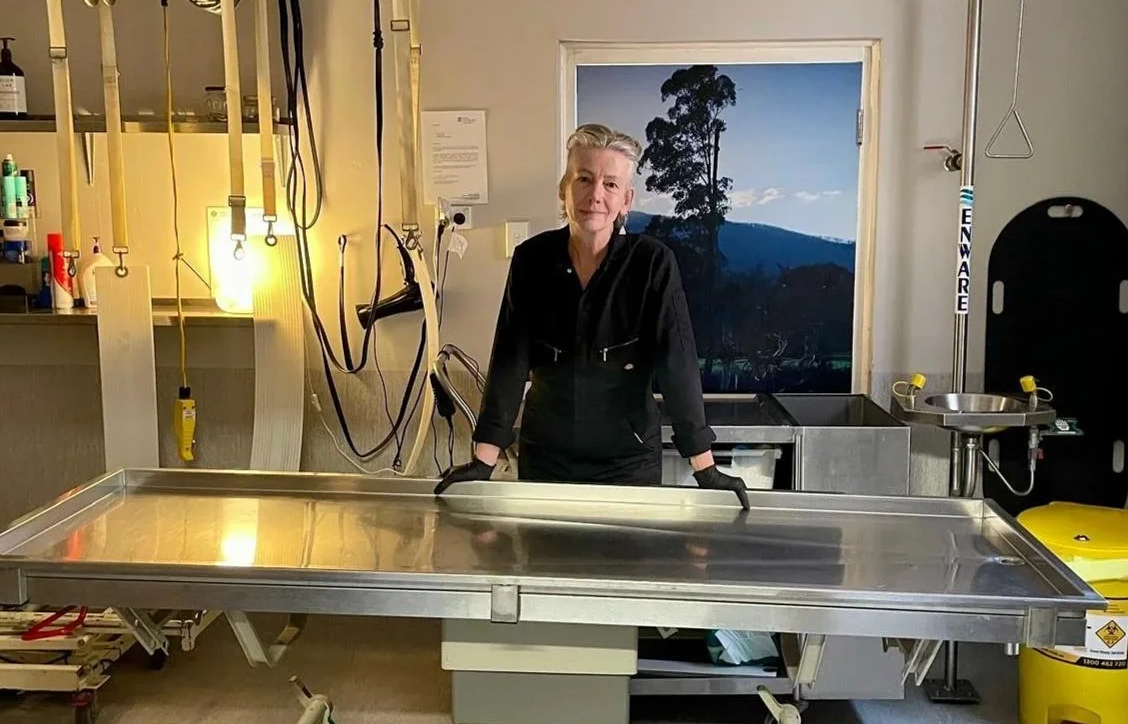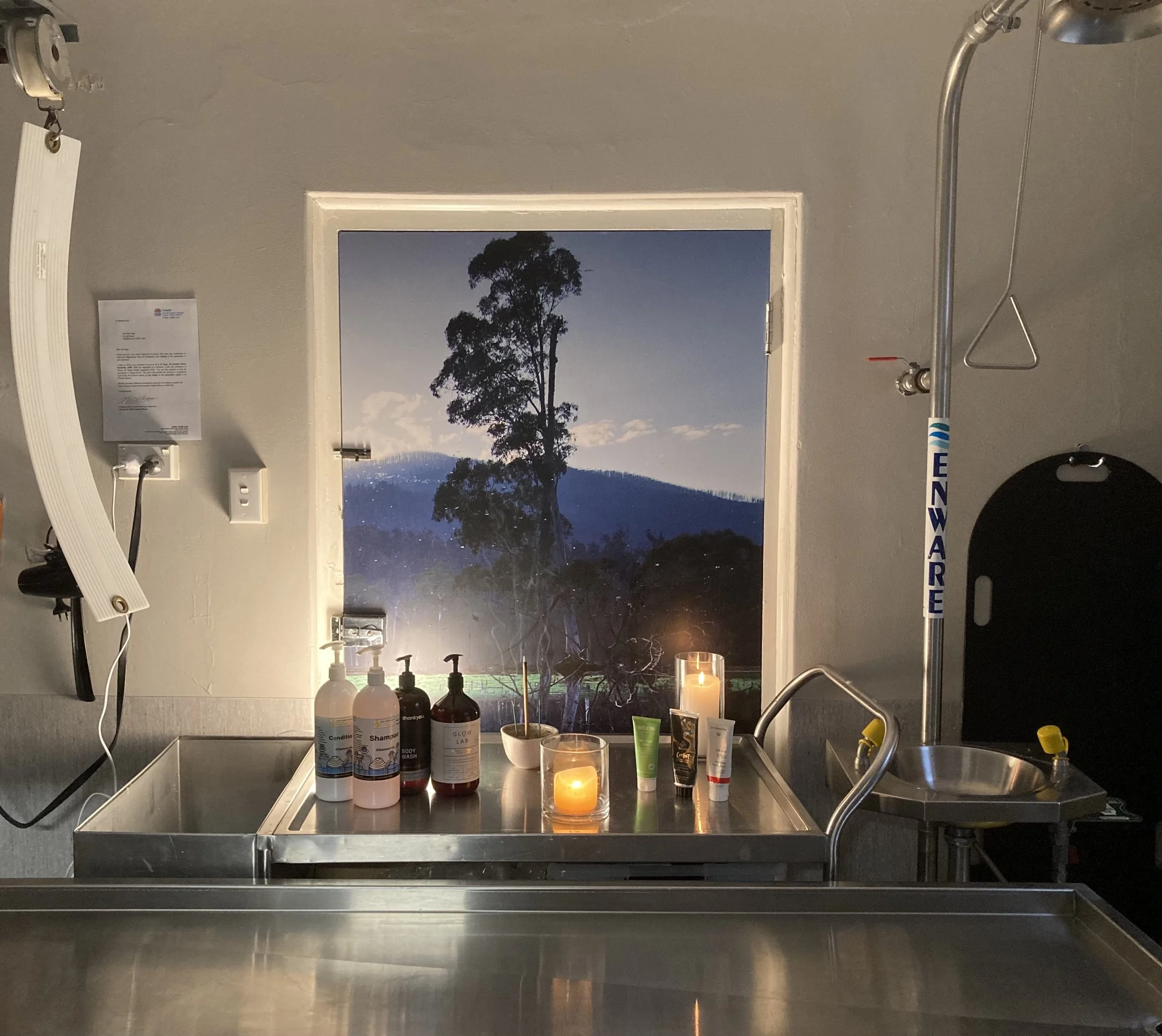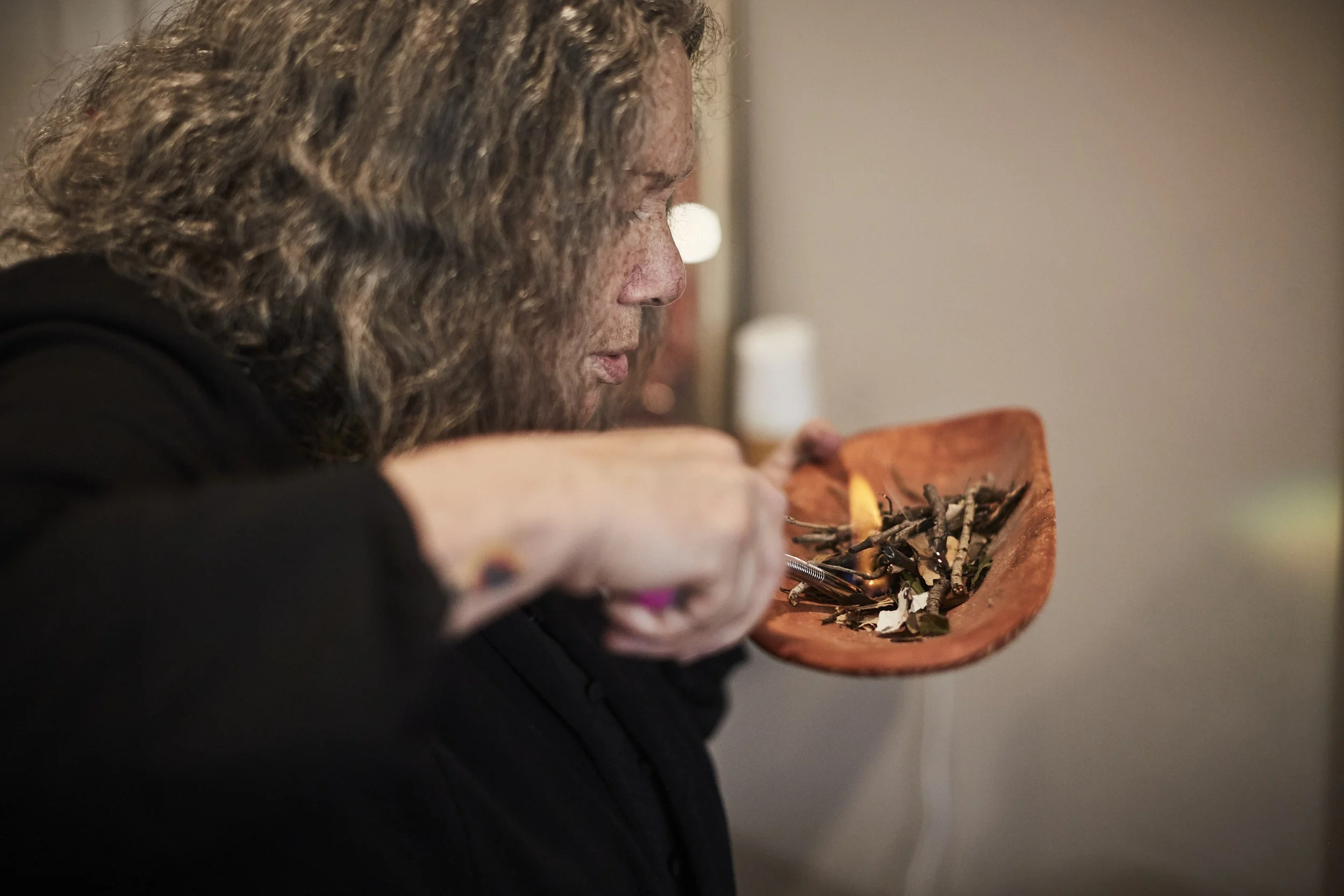What It Means to Care for Our Dead
After the intensity and shock that accompanies most deaths, when someone arrives at our mortuary, there is a kind of quiet that settles in. A silence full of presence. In which another form of care begins. At Life Rites, mortuary care does not happen somewhere out of sight or behind closed doors in another part of Sydney. It happens right here, in the same building where families sit with us to share stories, make arrangements, and begin to navigate their loss.
Our mortuary is the most important part of our space, both physically and philosophically . It is where the integration the care of the living with their care of the dead takes place. This is the way that Funeral Rites regain their healing force. The person who has died remains central to the funeral rite. They are cared for by the team that welcomed their family in, the same energy that holds every conversation in our meeting room, the same values that shape the ceremonies we create. Having our mortuary on site allows us to move quickly or slowly, to respond to each family with immediacy, and to hold continuity of care from beginning to end. It allows us to keep the ‘personhood’ of our dead intact and in every part of the process.
When you step into the mortuary, you notice the calm. The air is still, the light is soft, and everything about the space asks you to slow down.To breathe out. The work that happens here is deeply personal. It is not mechanical or procedural. It is attentive, gentle, and grounded in respect. We approach each person with care, calling them by name, explaining what we are doing, and moving with the same tenderness we would offer in life. We wash and dress them, brush their hair, do their nails or place a favorite object by their side. Sometimes there is quiet music playing, other times it’s loud and vibrant, or there may be silence that fills the room. The music that is played is a choice we give to families and we honour that every time.
This work is not about changing or disguising; it is about honouring. We use natural methods and minimal intervention. We make choices that preserve dignity and truth. There is beauty in that simplicity, in the honest humanity of caring for a body with the same love and attention it once held for others. Sometimes a family member wants to be part of that care, to stand beside us, to place a hand on the shoulder, or to brush the hair one last time, and massage cream into their hands. Those moments are always deeply moving. You can see something shift, fear giving way to tenderness, uncertainty giving way to connection. To witness that is to see love take on a new form.
We speak of people, of care, of tending. Every decision we make, from how we prepare the space to how we move within it, is guided by respect. This is the foundation of our work, and it is what allows families to trust that their person is held gently, thoughtfully, and with integrity.
When we moved into our current premises in 2019, we did so explicitly to have our mortuary onsite. Sarah was the first team member into the mortuary who laid the foundational base notes of how we work. Time. Reverence. Breath. Vicki, who leads much of our mortuary care now, continues the reverence and ritual in the work. They describe their connection to the mortuary as something that has grown from a lifelong curiosity about death and nature. “I was a curious child,” Vicki says, “deeply inspired by the natural world. Death seemed to me to be such a huge part of life, but everyone around me was terrified of it. I wanted to change that narrative, to talk openly and freely about living and dying.” After facing their own mortality through a cancer diagnosis, Vicki’s relationship to this work deepened. “It reignited my passion,” they say. “I appreciate the ritualistic aspects of caring for the dead, the setting of the space, the washing and dressing, the honouring. For me, it encompasses the power of nature. We are born, we die, and we go back to the earth.”
When Vicki steps into the mortuary, they describe it as still and solemn. “Once it gets filled with the energy of the person I’m caring for, with their music, their clothes, with incense and oils, it becomes their space, and you can often feel their presence.” Respect begins for them with greeting the person they are caring for. “I speak to them from the moment I enter the space. I introduce myself. I tell them everything I am doing. Respect means working gently and slowly. It always starts with holding their hand or their feet and just connecting, acknowledging who they are and what they have been through.”
There are small gestures that hold deep meaning for Vicki. “Ironing someone’s clothes always feels incredibly personal to me,” they say. “You often get the smell of a person from a well-loved outfit, and that’s very moving.” After their work, Vicki finds balance and stillness in nature. “I spend time in the bush or just sit in my backyard listening to the birds, putting my hands in the dirt. I spend a lot of time alone in silence, just recharging.”
For Vicki, this work is not sad; it is beautiful. “Of course there are heartbreaking moments,” they say, “but often the mortuary is a place of joy, and deep acknowledgment of a life well lived. It is a great honour and a privilege. As a masseuse of thirty years, extending body care from the living to the dead comes very naturally to me.”
To care for our dead is to remember that love does not stop at the moment of death. It continues through action, through touch, through presence. It becomes something quieter but no less powerful. This work connects us to something ancient, a rhythm that communities once held close, when tending to the dead was part of the natural cycle of life.
When the care is complete and the room falls still again, there is often a sense of peace that lingers. The kind of peace that comes from having done something meaningful. It is not grand or ceremonial; it is humble, ordinary, and sacred all at once. This is what it means to care for our dead: to honour the human body, to meet it with tenderness, and to understand that in doing so, we are honouring love itself.




